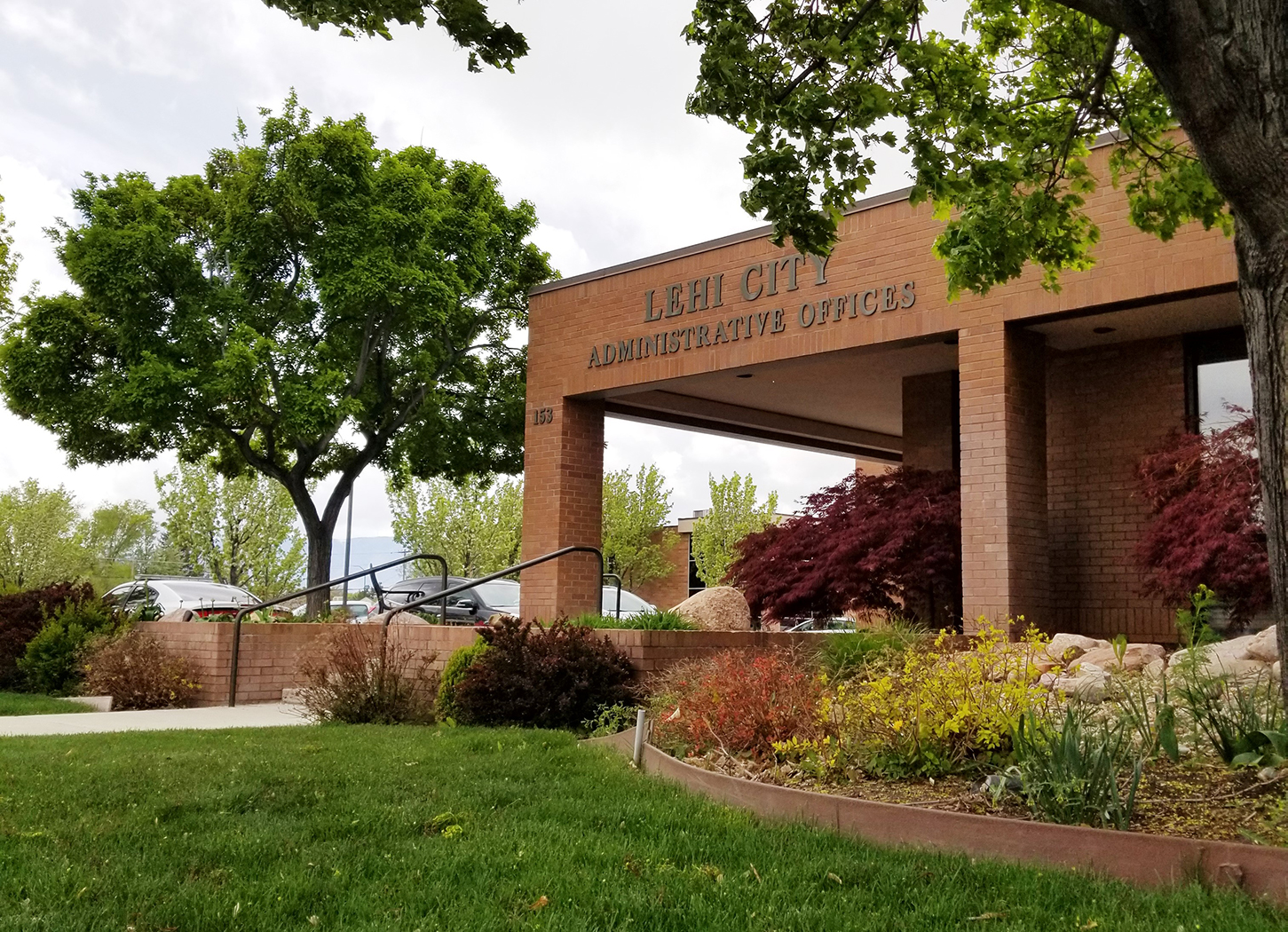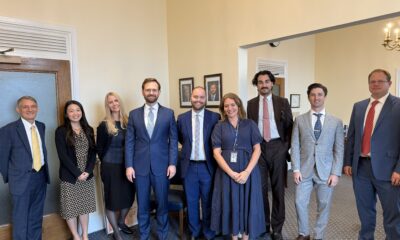Politics & Government
City Council debates amendment to school district split interlocal agreement
Published
1 year agoon

Matt Hemmert | Lehi Free Press
The December 10 Lehi City Council meeting agenda included an amendment to the interlocal agreement establishing the framework to form a new school district. The amendment was ultimately approved, but not without strong opposition from one city council member.
City Administrator Jason Walker started the presentation and explained that although there is pending legislation clarifying state code on the formation of new school districts, the amendment provides the Central School District cities with the authority to start necessary work before the election of the new school board.
“We can’t guarantee that that legislation will go through. So, the thought is that if that legislation supersedes this, the [amendment] would be moot and go away. But in the event that that legislation does not pass or does not accomplish what we need it to, then this [amendment] would be in place to allow us to keep working,” Walker explained.
Councilmember Michelle Stallings then questioned the city’s intentions. “What direction do we want to go forward as a city? Do we want continued involvement in the new school district as a city, or do we want to leave it to who the people elect to the school board?” Stallings asked.
Walker explained that the city’s involvement would cease when the new school board is put in place. He further explained that work needs to be done in the meantime, and the amendment gives the city and other interlocal member cities the authority to do that work.
Stallings asked Walker for examples of work that needed to be done prior to installing the new school board. Walker explained that the necessary work included:
• Naming the new district.
• Initiating discussions about the division of assets among the three new school districts.
• Establishing the metes and bounds of the three new school districts.
Stallings responded that according to state law, the county is responsible for establishing school district boundaries, and the school district is responsible for the other examples Walker provided.
“We made it clear, many of us anyway, that we were presenting this option to voters to create a new school district or not. That is our role. And we need to step back because we were not elected to be the school board,” Stallings continued.
Walker explained the interlocal cities’ dilemma: The county has been very clear about pushing as much work as possible to the interlocal cities and that there was no current school board to make the decisions outlined in state law.
Stallings raised an additional concern about the city spending city money and allocating city resources to do the work the county and school district should do.
“When we started down this path, we knew the interlocals would be in a position where we would have to make certain decisions, albeit they’re going to be hard and albeit nobody really wants to make them,” Mayor Mark Johnson interjected. “I don’t care for the job and the work, but it’s a responsibility that somebody has to take. Right now, there’s no one else other than the interlocal to do that.”
“We don’t have to do this. We shouldn’t do this. I have not talked to anyone [who is a member of a local city council] outside of this city who thinks the cities should take the lead on dividing the assets and liabilities and making those recommendations. That’s not what we were elected to do,” Stallings replied.
Johnson explained that every city council in the interlocal agreement is considering the amendment and that some of the cities have already passed it. “That would indicate that there enough councilmembers out there who understand our predicament,” Johnson said.
Stallings countered by acknowledging that some have voted to pass the amendment but that the consensus among the individuals she’s spoken with is that they do not want the interlocal cities to be involved any further.
City Councilmember Heather Newall offered her thoughts. “I agree that the school board members are the ones that are to divide assets and do a lot of this heavy lifting. I see this [amendment] as a means to not be negligent. This ensures that we have the ability to do the necessary things now and in the future. And hopefully, those things would be very limited,” Newall said.
Newall also said that she shared Stallings’ concern about the city’s expenditures and that perhaps the pending legislation should include a provision requiring a school district to reimburse cities for expenses incurred for necessary work before the formation of the school board.
“It’s probably not a completely apt analogy, but I look at this kind of like insurance policies. I don’t buy them because I plan to use them; I buy them because I hope I don’t have to,” City Councilmember Paige Albrecht added.
“In this case, I haven’t talked to a single person who says, ‘Oh yay, we can do more stuff as a city [with this amendment].’ It’s more of a ‘Gosh, I hope we don’t have to use this, but if we need it, I hope it’s in place and usable,’” Albrecht continued.
Albrecht also agreed with Newall and Stallings that the city has and would spend city funds without a reimbursement guarantee.
City Councilmember Chris Condie agreed with many of the council’s statements and concerns and added, “We don’t want the cities to do more than they have to. But we can’t just sit by and wait for a new board’s election and seating.”
Stallings and Walker further debated past city expenditures and the lack of an approval process involving the City Council. After much back and forth, Walker said, “Not to split hairs, but those amounts are amounts I’m allowed to spend as City Administrator. And as the City Administrator, I feel it’s my job to claw those dollars back. I believe those costs should be attributed to the [new] school district.”
Stallings continued by stating that the city should wait for the legislation to pass and see what the legislature wants the city’s responsibilities to be. “If we pass this, it sends a message to the legislature that we want to do more and sends a message to the residents that we want to do more,” Stallings said.
“That’s not the message,” Johnson responded. “There’s work to be done, and we need to make sure it’s done. Until the bill happens, we need to operate somehow and not just sit back and say this isn’t our responsibility.”
The resolution approving the amendment to the interlocal agreement passed, with Stallings’ the only opposing vote.
The amendment will not be put into effect unless it is passed by all cities in the interlocal agreement. Highland City and American Fork City have also unanimously approved the amendment as of December 15, 2024.

You may like
-


“Passion into purpose”: Local supercar owners donate over $60k to Make-A-Wish
-


United Way of Utah County brings Christmas hope to hundreds of families
-


QR codes add modern convenience to Lehi’s historical markers
-


The Ruth’s “A Christmas Carol” a magical holiday tale
-


Local child protection group takes its fight against big tech to the FTC
-


Willowcreek administrators spark holiday cheer for students
-


Teen entrepreneurs showcase innovation at Christmas market
-


Why a new mineral find near Utah Lake is drawing national attention
-
Aspen Peaks School Board approves budget, launches staff searches and boundary study
-


Lehi’s TSSD sewer rates to increase over 100% by 2027

